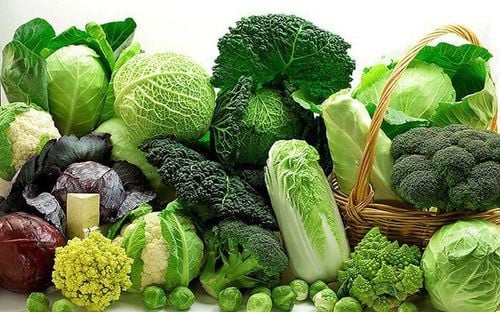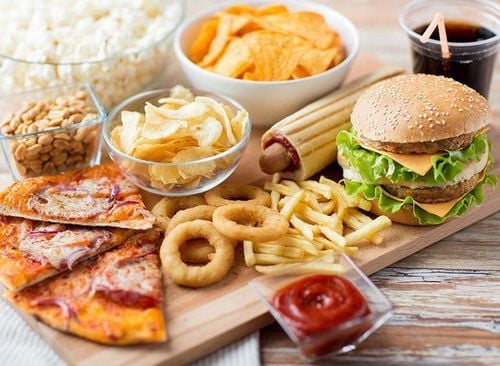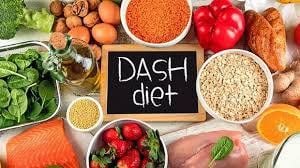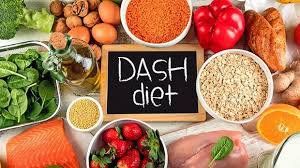This is an automatically translated article.
A low-carb diet is one that restricts carbohydrates such as grains, vegetables, and starches and favors foods high in protein and fat.1. Why should you follow a low-carb diet?
A low-carb diet is a diet that restricts carbohydrates, such as those with sugar, pasta, and bread.
A low-carb diet is largely comprised of protein, healthy fats, and vegetables. There are many different types of low-carb diets available today, and studies show that all of them can help you lose weight and improve your health. In addition, a low-carb diet offers many other health benefits beyond weight loss, such as reducing risk factors associated with type 2 diabetes and metabolic syndrome.
You may choose to go on a low-carb diet because:
Want to go on a carb-restricted diet to help you lose weight. Want to change overall eating habits. It is best to consult your doctor before starting any weight loss diet, especially if you have medical conditions such as diabetes or heart disease.

Chế độ ăn kiêng low-carb phù hợp với những đối tượng muốn giảm cân
2. Why does a low-carb diet help with weight loss?
Low-carb diets restrict the type of carbohydrate, which is a high-calorie nutrient found in many foods and beverages.
Carbohydrates can be in simple or complex form. They can be classified into simple refined (table sugar), natural simple (sugar in milk and fructose in fruit), complex refined (white powder) and complex natural (cereals or beans). ). Common natural sources of carbohydrates include:
Fruits Vegetables Dairy Sprouts Nuts, beans (beans, lentils, peas) The meaning of a low-carb diet is to reduce carbs (starches) This will lower insulin levels and cause the body to burn stored fat for energy and eventually lead to weight loss.
Most people can lose weight if they limit the number of calories they consume and increase their level of physical activity. To lose (0.5 to 0.7 kg) per week, you need to reduce 500 to 750 calories daily.

Nguồn carbohydrate xuất hiện trong các loại thực phẩm rau xanh
3. Typical foods in a low-carb diet
Which foods to choose depends on a number of factors such as health status, exercise and how much weight you want to lose. Below are the foods commonly found on a low-carb diet, however, to know exactly which foods are right for your health condition, you need to consult with your doctor before doing so. presently.
3.1 Foods to Eat Meat, fish, eggs, vegetables, fruits, nuts, sprouts, dairy, healthy cooking oils and maybe even some gluten-free tubers and grains.
3.2 Foods to Avoid You should avoid the following six food and nutrient groups, in order of preference:
Sugar: Soft drinks, fruit juices, agave sugar, candy, ice cream and many other products with contains sugar. Refined grains: Wheat, rice, barley, and rye, as well as bread, cereal, and pasta. Trans fats: Hydrogenated or partially hydrogenated oils. Convenience food. Starchy Vegetables: It's best to limit starchy vegetables in your diet if you're following a very low-carb diet.
A daily limit of 20 to 60 grams of carbohydrates is typical with a low carb diet. With this amount of carbohydrates will provide about 80 to 240 calories. Low-carb diets greatly restrict carbs in the early stages of the diet and then gradually increase the amount of carbs allowed.
Americans recommend that carbohydrates make up 45 to 65% of total daily calories. So if you consume 2,000 calories per day, you will need to eat between 900 and 1,300 calories per day from carbohydrates.

Thực phẩm chế biến sẵn là một trong các loại thực phẩm mà người dùng cần tránh
4. Side effects of low-carb diets
If you cut back on carbs suddenly, you could experience a variety of temporary health effects, including:
Headache Bad breath Weakness Muscle cramps Fatigue Skin rash Constipation or diarrhea In addition, Some diets restrict carbohydrate intake to the point that in the long run they can lead to vitamin or mineral deficiencies, digestive disorders and possibly increase the risk of various chronic diseases.
For women's low carb diet, if there are not enough carbs, women experience irregular menstrual cycles or amenorrhea.
Because low-carb diets may not provide the necessary nutrients, these diets are not recommended as a weight loss method for the elderly and high school students due to their growing bodies. Grown-ups need the nutrients found in whole grains, fruits, and vegetables.
Any questions that need to be answered by a specialist. You can contact Vinmec Health System nationwide or register online HERE.













